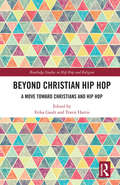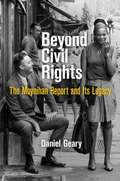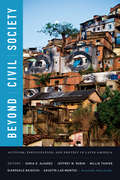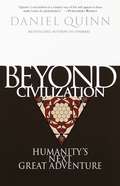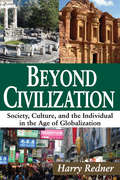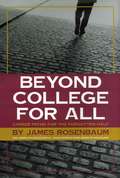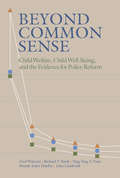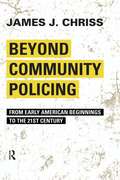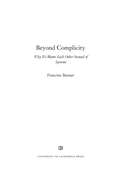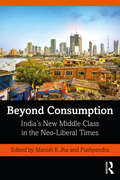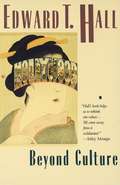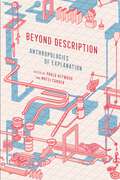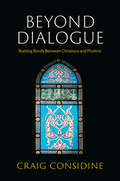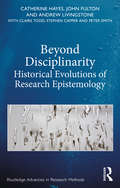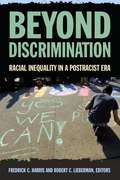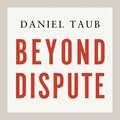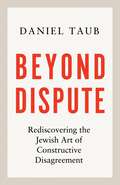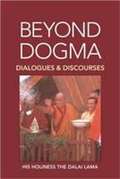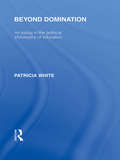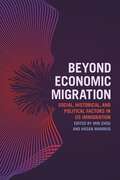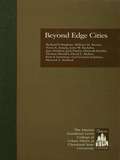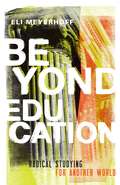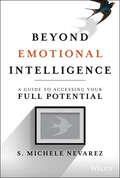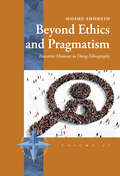- Table View
- List View
Beyond Christian Hip Hop: A Move Towards Christians and Hip Hop (Routledge Studies in Hip Hop and Religion)
by Erika D. Gault Travis HarrisChristians and Christianity have been central to Hip Hop since its inception. This book explores the intersection of Christians and Hip Hop and the multiple outcomes of this intersection. It lays out the ways in which Christians and Hip Hop overlap and diverge. The intersection of Christians and Hip Hop brings together African diasporic cultures, lives, memories and worldviews. Moving beyond the focus on rappers and so-called "Christian Hip Hop," each chapter explores three major themes of the book: identifying Hip Hop, irreconcilable Christianity, and boundaries.There is a self-identified Christian Hip Hop (CHH) community that has received some scholarly attention. At the same time, scholars have analyzed Christianity and Hip Hop without focusing on the self-identified community. This book brings these various conversations together and show, through these three themes, the complexities of the intersection of Christians and Hip Hop. Hip Hop is more than rap music, it is an African diasporic phenomenon. These three themes elucidate the many characteristics of the intersection between Christians and Hip Hop and our reasoning for going beyond "Christian Hip Hop." This collection is a multi-faceted view of how religious belief plays a role in Hip Hoppas' lives and community. It will, therefore, be of great interest to scholars of Religion and Hip Hop, Hip Hop, African Diasporas, Religion and the Arts, Religion and Race and Black Theology as well as Religious Studies more generally.
Beyond Civil Rights
by Daniel GearyShortly after the 1964 Civil Rights Act, Daniel Patrick Moynihan authored a government report titled The Negro Family: A Case for National Action that captured the attention of President Lyndon Johnson. Responding to the demands of African American activists that the United States go beyond civil rights to secure economic justice, Moynihan thought his analysis of black families highlighted socioeconomic inequality. However, the report's central argument that poor families headed by single mothers inhibited African American progress touched off a heated controversy. The long-running dispute over Moynihan's conclusions changed how Americans talk about race, the family, and poverty.Fifty years after its publication, the Moynihan Report remains a touchstone in contemporary racial politics, cited by President Barack Obama and Congressman Paul Ryan among others. Beyond Civil Rights offers the definitive history of the Moynihan Report controversy. Focusing on competing interpretations of the report from the mid-1960s to the late 1970s, Geary demonstrates its significance for liberals, conservatives, neoconservatives, civil rights leaders, Black Power activists, and feminists. He also illustrates the pitfalls of discussing racial inequality primarily in terms of family structure. Beyond Civil Rights captures a watershed moment in American history that reveals the roots of current political divisions and the stakes of a public debate that has extended for decades.
Beyond Civil Society: Activism, Participation, and Protest in Latin America
by Gianpaolo Baiocchi Agustín Laó-Montes Sonia E. Alvarez Millie Thayer Jeffrey W. RubinThe contributors to Beyond Civil Society argue that the conventional distinction between civic and uncivic protest, and between activism in institutions and in the streets, does not accurately describe the complex interactions of forms and locations of activism characteristic of twenty-first-century Latin America. They show that most contemporary political activism in the region relies upon both confrontational collective action and civic participation at different moments. Operating within fluid, dynamic, and heterogeneous fields of contestation, activists have not been contained by governments or conventional political categories, but rather have overflowed their boundaries, opening new democratic spaces or extending existing ones in the process. These essays offer fresh insight into how the politics of activism, participation, and protest are manifest in Latin America today while providing a new conceptual language and an interpretive framework for examining issues that are critical for the future of the region and beyond. Contributors. Sonia E. Alvarez, Kiran Asher, Leonardo Avritzer, Gianpaolo Baiocchi, Andrea Cornwall, Graciela DiMarco, Arturo Escobar, Raphael Hoetmer, Benjamin Junge, Luis E. Lander, Agustín Laó-Montes, Margarita López Maya, José Antonio Lucero, Graciela Monteagudo, Amalia Pallares, Jeffrey W. Rubin, Ana Claudia Teixeira, Millie Thayer
Beyond Civilization: Humanity's Next Great Adventure
by Daniel QuinnIn his first work of nonfiction to build on the ideas of his "Ishmael" books, Daniel Quinn argues provocatively that civilization--a system to which we cling as it carries us toward global catastrophe--is an idea whose time has past. If humanity is to survive, we must move beyond civilization, not back to the tribal cultures that sustained our species for millions of years, but forward to a new tribal way of life that is right for our age. This new tribal culture is best exemplified by a circus whose members all work toward the same goal. In Beyond Civilization, Quinn argues persuasively that this is no utopian dream. It is a vital necessity that we must begin moving toward today. "[Quinn] shows us that getting 'beyond' the mess of civilization doesn't mean changing human nature or setting off a revolution. We only need breathe new life into an ancient human strategy for survival. Quinn's plan is inspiring & devilishly clever. " --John Briggs, author of Seven Life Lessons of Chaos.
Beyond Civilization: Society, Culture, and the Individual in the Age of Globalization
by Harry RednerFor Harry Redner, the phrase "beyond civilization" refers to the new and unprecedented condition the world is now entering‘specifically, the condition commonly known as globalization. Redner approaches globalization from the perspective of history and seeks to interpret it in relation to previous key stages of human development. His account begins with the Axial Age (700 300 BC) and proceeds through Modernity (after AD 1500) to the present global condition.What is globalization doing to civilization? In answering this question, Redner studies the role played by capitalism, the state, science and technology. He aims to show that they have had a catalytic impact on civilization through their reductive effect on society, culture, and individualism.However, Redner is not content to diagnose the ills of civilization; he also suggests how they might be ameliorated by cultural conservation. Above all, it is to the problem of decline in the higher forms of literacy that he addresses himself, for it is on the culture of the book that previous civilizations were founded. This study will be of interest to sociologists, historians, and social and political theorists. Its style makes it accessible also to general readers, interested in civilization past, present, and future.
Beyond College For All: Career Paths for the Forgotten Half
by James E. RosenbaumIn a society where everyone is supposed to go to college, the problems facing high school graduates who do not continue their education are often forgotten. Many cannot find jobs, and those who do are often stuck in low-wage, dead-end positions. Meanwhile employers complain that high school graduates lack the necessary skills for today's workplace. Beyond College for All focuses on this crisis in the American labor market. Around the world, author James E. Rosenbaum finds, employers view high school graduates as valuable workers. Why not here? Rosenbaum reports on new studies of the interaction between employers and high schools in the United States. He concludes that each fails to communicate its needs to the other, leading to a predictable array of problems for young people in the years after graduation. High schools caught up in the college-for-all myth, provide little job advice or preparation, leading students to make unrealistic plans and hampering both students who do not go to college and those who start college but do not finish. Employers say they care about academic skills, but then do not consider grades when deciding whom to hire. Faced with few incentives to achieve, many students lapse into precisely the kinds of habits employers deplore, doing as little as possible in high school and developing poor attitudes. Rosenbaum contrasts the situation in the United States with that of two other industrialized nations-Japan and Germany-which have formal systems for aiding young people who are looking for employment. Virtually all Japanese high school graduates obtain work, and in Germany, eighteen-year-olds routinely hold responsible jobs. While the American system lacks such formal linkages, Rosenbaum uncovers an encouraging hidden system that helps many high school graduates find work. He shows that some American teachers, particularly vocational teachers, create informal networks with employers to guide students into the labor market. Enterprising employers have figures out how to use these networks to meet their labor needs, while students themselves can take steps to increase their ability to land desirable jobs. Beyond College for All suggests new policies based on such practices. Rosenbaum presents a compelling case that the problems faced by American high school graduates and employers can be solved if young people, employers, and high schools build upon existing informal networks to create formal paths for students to enter the world of work. A Volume in the American Sociological Association's Rose Series in Sociology
Beyond Common Sense: Child Welfare, Child Well-Being, and the Evidence for Policy Reform
by John LandsverkHelping vulnerable children develop their full potential is an attractive idea with broad common-sense appeal. However, child well-being is a broad concept, and the legislative mandate for addressing well-being in the context of the current child welfare system is not particularly clear. This volume asserts that finding a place for well-being on the list of outcomes established to manage the child welfare system is not as easy as it first appears. The overall thrust of this argument is that policy should be evidence-based, and the available evidence is a primary focus of the book. Because policymakers have to make decisions that allocate resources, a basic understanding of incidence in the public health tradition is important, as is evidence that speaks to the question of what works clinically. The rest of the book addresses the evidence. Chapter 2 integrates bio-ecological and public health perspectives to give the evidence base coherence. Chapters 3 and 4 combine evidence from the National Child Abuse and Neglect Data System, the Multistate Foster Care Data Archive, and the National Survey of Child and Adolescent Well-Being to offer an unprecedented profile of children as they enter the child welfare system. Chapters 5 and 6 address the broad question of what works. A concluding chapter focuses on policy and future directions, suggesting that children starting out, children starting school, and children starting adolescence are high-risk populations for which explicit strategies have to be formed. This timely volume offers useful insights into the child welfare system and will be of particular interest to policymakers, academics with an interest in Child Welfare Policy, Social Work educators, and Child Advocates.
Beyond Community Policing: From Early American Beginnings to the 21st Century
by James J. ChrissBeyond Community Policing uses history and general sociological theory to examine the trajectory of municipal policing from Britain in the 1830s to its adoption and evolution in the America. By analysing the uncertain and uneven historical development of policing, this book illustrates in great detail the functional connections between cities (or communities) and police departments. Chriss also considers the development of municipal policing in the American West between 1850 and 1890, which helps to situate the current discussion of policing in the post 9/11 United States.
Beyond Complicity: Why We Blame Each Other Instead of Systems
by Francine BannerAn ambitious study of our obsession with complicity that shows how we can all become "good accomplices." Beyond Complicity is a fascinating cultural diagnosis that identifies our obsession with complicity as a symptom of a deeply divided society. The questions surrounding what it means to be legally complicit are the same ones we may ask ourselves as we evaluate our own and others' responsibility for inherited and ongoing harms, such as racism, sexism, and climate change: What does it mean that someone "knew" they were contributing to wrongdoing? How much involvement must a person have in order to be complicit? At what point are we obligated to intervene? Francine Banner ties together pop culture, politics, law, and social movements to provide a framework for thinking about what we know intuitively: that our society is defined by crisis, risk, and the quest to root out hazards at all costs. Engaging with legal cases, historical examples, and contemporary case studies, Beyond Complicity unfolds the complex role that complicity plays in US law and society today, offering suggestions for how to shift focus away from blame and toward positive, lasting systemic change.
Beyond Consumption: India’s New Middle Class in the Neo-Liberal Times
by Pushpendra Jha KThis book analyses India’s middle class by recognising the diversity within the class, the people, their practices, and the production of spaces. It explores the economic and social lives of the new middle class, expanding the areas of inquiry beyond consumption in post-liberalisation India and its intersectionalities with gender, caste, religion, migration, and other socioeconomic markers in various cities across the country. The book interrogates the meanings and perceptions of social mobility, growth, consumerism, technology, social identity, and development and examines how they can be emancipatory or subjugating in different contexts. It engages with the new entrants in the middle class, particularly from the marginalised sections, their struggles, insecurities, anxieties, agency, and experiences. The personal, emotive, and psychic dimensions of social mobility have been dealt with in the larger context of socioeconomic settings. The book crosses disciplinary and spatial boundaries and uses a variety of methodologies to provide perspectives on several unexplored or underexplored areas of India’s new middle class. This book will be of interest to scholars and researchers of sociology, economics, development studies, public policy, and South Asian studies.
Beyond Culture
by Edward T. HallFrom a renowned American anthropologist comes a proud celebration of human capacities. For too long, people have taken their own ways of life for granted, ignoring the vast, international cultural community that surrounds them. Humankind must now embark on the difficult journey beyond culture, to the discovery of a lost self a sense of perspective. <p><p> By holding up a mirror, Hall permits us to see the awesome grip of unconscious culture. With concrete examples ranging from James Joyce's Finnegans Wake to the mating habits of the bowerbird of New Guinea, Hall shows us ourselves. Beyond Culture is a book about self-discovery; it is a voyage we all must embark on if mankind is to survive. <p> "Fascinating and emotionally challenging. . . The book's graceful, non-technical style and the many illuminating, real-life illustrations make it a delight to read. " --Library Journal<p> "Hall's book helps us to rethink our values. . . We come away from it exhilerated. " --Ashley Montagu <p>"In this penetrating analysis of the culturally determined yet 'unconscious' attitudes that mold our thought, feeling, communication and behavior. . . Hall makes explicit taken-for-granted linguistic patterns, body rhythms, personality dynamics, educational goals. . . Many of Hall's ideas are original and incisive. . . [and] should reward careful readers with new ways of thinking about themselves and others. " --Publishers Weekly<p> "A fascintaing book which stands beside The Hidden Dimension and The Silent Language to prove Hall one of the most original anthropologists of our era. " --Paul Bohannan
Beyond Description: Anthropologies of Explanation
by Paolo Heywood and Matei CandeaBeyond Description brings anthropologists and other social scientists together to examine the problem of explanation. What is "an explanation?" What can it add? What makes it authoritative, clarifying, or misleading? Whom does it serve and how is it produced? These questions lie at the heart of recent public crises of confidence in expertise, political representation, and classic liberal visions of whom we can rely on for true and trustworthy accounts. In a world beset by events and processes that seem to defy expert predictions of their impossibility, and in which post-hoc accounts can often feel more like rationalizations than explanations, competing voices vie for public presence and seek to silence one another. Anthropology and the social sciences face such questions too, making contemporary explanatory practice both an empirical and a reflexive challenge. By combining ethnographic studies of practices of explanation in a range of contemporary political, medical, artistic, religious, and bureaucratic settings, the essays in Beyond Description offer critical examinations of changing norms and forms of explanation in the world and within anthropology itself.
Beyond Dialogue: Building Bonds Between Christians and Muslims
by Craig ConsidineIn these times of rising tensions between Christians and Muslims across the world, the need for harmony and peace has never been more urgent. As one of the world’s leading advocates of interfaith dialogue, Craig Considine introduces readers to the provocative idea of the Synthesis of Civilizations, a theory that pushes beyond dialogue to show where and how Western and Islamic civilizations have been – and continue to be – in a deeper union with one another.With an open mind and a deep appreciation of the Abrahamic tradition, Considine takes readers on a fascinating journey across history and the current state of Christian–Muslim relations in seven “battleground” regions of the world. Alongside the undeniable tensions between Christians and Muslims, the book presents and applies an interfaith community-building tool – DEUCE – focused on dialogue, education, understanding, commitment, and engagement. With unprecedented civilizational scope and sweeping sociological insight, Considine does full justice to the religious and social bonds between Christianity and Islam.While daily headlines highlight the shared fear, persecution, and violence experienced by Christians and Muslims worldwide, Beyond Dialogue is intended to inspire interfaith bridge builders who are passionate about defending and promoting civility, humanity, and pluralism on the world stage.
Beyond Disciplinarity: Historical Evolutions of Research Epistemology (Routledge Advances in Research Methods)
by Peter Smith John Fulton Andrew Livingstone Catherine Hayes Claire Todd Stephen CapperThis book provides a means of comprehensively grounding and considering the epistemological and philosophical underpinnings of practice-based research epistemologies. By introducing readers to the diverse array of methodological tools and concepts that are necessary to underpin postgraduate research, this book develops an understanding of the distinctions between practice-led research, practice-based research and question-led research, and the contextual significance of each, as well as enabling students to comprehend the historical relationships between academic disciplines and the value of reconnecting them at an epistemological and philosophical level. Through illustrated examples from applied practice across disciplines such as art, social sciences and medical and allied healthcare sciences, readers are encouraged to develop the capacity to not only think conceptually about their own research, but to systematically evaluate that of others. With this focus on descriptive studies from practice, the book fosters higher-order critical thinking in relation to implications for methodological implementation, encouraging deep learning processes and the confidence to transcend the limits of one’s own discipline in order to work collaboratively with researchers in different fields.
Beyond Discrimination: Racial Inequality in a Post-Racist Era
by Robert C. Lieberman Fredrick C. HarrisNearly a half century after the civil rights movement, racial inequality remains a defining feature of American life. Along a wide range of social and economic dimensions, African Americans consistently lag behind whites. This troubling divide has persisted even as many of the obvious barriers to equality, such as state-sanctioned segregation and overt racial hostility, have markedly declined. How then can we explain the stubborn persistence of racial inequality? In Beyond Discrimination: Racial Inequality in a Post-Racist Era, a diverse group of scholars provides a more precise understanding of when and how racial inequality can occur without its most common antecedents, prejudice and discrimination. Beyond Discrimination focuses on the often hidden political, economic and historical mechanisms that now sustain the black-white divide in America. The first set of chapters examines the historical legacies that have shaped contemporary race relations. Desmond King reviews the civil rights movement to pinpoint why racial inequality became an especially salient issue in American politics. He argues that while the civil rights protests led the federal government to enforce certain political rights, such as the right to vote, addressing racial inequities in housing, education, and income never became a national priority. The volume then considers the impact of racial attitudes in American society and institutions. Phillip Goff outlines promising new collaborations between police departments and social scientists that will improve the measurement of racial bias in policing. The book finally focuses on the structural processes that perpetuate racial inequality. Devin Fergus discusses an obscure set of tax and insurance policies that, without being overtly racially drawn, penalizes residents of minority neighborhoods and imposes an economic handicap on poor blacks and Latinos. Naa Oyo Kwate shows how apparently neutral and apolitical market forces concentrate fast food and alcohol advertising in minority urban neighborhoods to the detriment of the health of the community. As it addresses the most pressing arenas of racial inequality, from education and employment to criminal justice and health, Beyond Discrimination exposes the unequal consequences of the ordinary workings of American society. It offers promising pathways for future research on the growing complexity of race relations in the United States.
Beyond Dispute: Rediscovering the Jewish art of constructive disagreement
by Daniel TaubFiercely divisive times call for radically different arguments.In our age of seemingly irreconcilable differences, argument is increasingly seen as a plague to be avoided or a contest to be won. Daniel Taub, an experienced peace negotiator and diplomat, argues that ancient Jewish wisdom offers a third way. Drawing from this tradition, and from his own experience at the heart of some of the world's toughest negotiations, in Beyond Dispute he makes the case for a radically different approach to help us come closer to truth and to each other.This approach sees argument not as a combat zone but as a joint enterprise, and its disputants not as jealous custodians of competing truths, but collaborative explorers. It seeks to create safe spaces not by outlawing controversial opinions but by welcoming them, and it offers a set of practical tools to rethink our own preconceptions. In fractious times it charts a way to build communities and societies that are resilient enough to face new and challenging ideas without fear.Weaving ancient insights with contemporary research in conflict resolution, as well as behind-the-scenes personal stories of diplomacy and negotiations, Beyond Dispute is a passionate call to rediscover and harness the vital and surprising power of a good argument.
Beyond Dispute: Rediscovering the Jewish art of constructive disagreement
by Daniel TaubFiercely divisive times call for radically different arguments.In our age of seemingly irreconcilable differences, argument is increasingly seen as a plague to be avoided or a contest to be won. Daniel Taub, an experienced peace negotiator and diplomat, argues that ancient Jewish wisdom offers a third way. Drawing from this tradition, and from his own experience at the heart of some of the world's toughest negotiations, in Beyond Dispute he makes the case for a radically different approach to help us come closer to truth and to each other.This approach sees argument not as a combat zone but as a joint enterprise, and its disputants not as jealous custodians of competing truths, but collaborative explorers. It seeks to create safe spaces not by outlawing controversial opinions but by welcoming them, and it offers a set of practical tools to rethink our own preconceptions. In fractious times it charts a way to build communities and societies that are resilient enough to face new and challenging ideas without fear.Weaving ancient insights with contemporary research in conflict resolution, as well as behind-the-scenes personal stories of diplomacy and negotiations, Beyond Dispute is a passionate call to rediscover and harness the vital and surprising power of a good argument.
Beyond Dispute: Rediscovering the Jewish art of constructive disagreement
by Daniel TaubFiercely divisive times call for radically different arguments.In our age of seemingly irreconcilable differences, argument is increasingly seen as a plague to be avoided or a contest to be won. Daniel Taub, an experienced peace negotiator and diplomat, argues that ancient Jewish wisdom offers a third way. Drawing from this tradition, and from his own experience at the heart of some of the world's toughest negotiations, in Beyond Dispute he makes the case for a radically different approach to help us come closer to truth and to each other.This approach sees argument not as a combat zone but as a joint enterprise, and its disputants not as jealous custodians of competing truths, but collaborative explorers. It seeks to create safe spaces not by outlawing controversial opinions but by welcoming them, and it offers a set of practical tools to rethink our own preconceptions. In fractious times it charts a way to build communities and societies that are resilient enough to face new and challenging ideas without fear.Weaving ancient insights with contemporary research in conflict resolution, as well as behind-the-scenes personal stories of diplomacy and negotiations, Beyond Dispute is a passionate call to rediscover and harness the vital and surprising power of a good argument.
Beyond Dogma: Dialogues And Discourses
by Alison Anderson Dalai Lama Xiv Marianne Dresser Steven GoodmanBeyond Dogma presents a record of a 1993 visit to France by His Holiness the Dalai Lama, recipient of the 1989 Nobel Peace Prize and the world's most prominent Buddhist leader. During a series of public lectures and question-and-answer sessions with political activists, religious leaders, students, scientists, Buddhist practitioners, and interfaith organizations, His Holiness responds to a wider range of contemporary social, political, and religious issues. Topics include the practice of Buddhism in the West; nonviolence, human rights, and the Tibetan crisis; ecumenical approaches to spirituality; the meeting of Buddhism and science; and more.
Beyond Domination (International Library of the Philosophy of Education Volume 23): An Essay in the Political Philosophy of Education
by Patricia WhiteThis volume introduces a new conception of political education and new roles for headteachers and parents in the creation of a more democratic educational system. The book proposes curbing the power of teachers, including headteachers, stripping parents of their rights, and making political education the keystone of education. It considers what kind of educational strategies would be appropriate to help move a society like our own towards greater democracy, in the light of a co-ordinated set of proposals about the democratic organization of political decision-making, and the development of democratic attitudes, notably fraternity. All this is underpinned by a radical analysis of basic democratic principles and assumptions, and a fundamental critique of the power-sharing machinery of such contemporary democratic societies as the UK and USA.
Beyond Economic Migration: Social, Historical, and Political Factors in US Immigration
by Min Zhou and Hasan MahmudOffers a critique of the economic model of immigrationMost understandings of migration to the US focus on two primary factors. Either there was trouble in the home country, such as political unrest or famine, that pushed people out, or there was a general yearning for “a better life” or “more opportunity,” often conceptualized as the American Dream. Although many contemporary migrants in the United States have been driven by economic interests, the processes of immigration and integration are shaped also by the intersection of a range of noneconomic factors in both sending and receiving countries. The contributors to Beyond Economic Migration offer a nuanced look at a range of issues affecting motives to migrate and outcomes of integration, including US immigration policy and the visa system, labor market incorporation, employment precarity, identity and belonging, and transnationalism relating to female migrants, student migrants, and temporary foreign workers. Beyond Economic Migration argues that, for the dream of fair and equitable migration to be realized, analyses of cross-border movements, resettlement, and integration must pay attention to how migrants’ individual attributes interact with institutional mechanisms and social processes.
Beyond Edge Cities (Contemporary Urban Affairs)
by William M. Bowen Richard D. Bingham Yosra AmaraIn his influential 1991 book Edge City, Joel Garreau argued that every American city "is growing in the fashion of Los Angeles, with multiple urban cores". He named these cores "edge cities" because they perform all of the city functions, but rise in places that were farmlands or villages only decades ago, far from the old downtowns. This new book expands and clarifies Garreau's pioneering concept as it develops a comprehensive theory of edge city growth and functions. The contributors draw on their expertise as geographers, political scientists, economics planners, and sociologists to offer a wide range of insights and analyses.
Beyond Education: Radical Studying for Another World
by Eli MeyerhoffA bold call to deromanticize education and reframe universities as terrains of struggle between alternative modes of studying and world-making Higher education is at an impasse. Black Lives Matter and #MeToo show that racism and sexism remain pervasive on campus, while student and faculty movements fight to reverse increased tuition, student debt, corporatization, and adjunctification. Commentators typically frame these issues as crises for an otherwise optimal mode of intellectual and professional development. In Beyond Education, Eli Meyerhoff instead sees this impasse as inherent to universities, as sites of intersecting political struggles over resources for studying.Meyerhoff argues that the predominant mode of study, education, is only one among many alternatives and that it must be deromanticized in order to recognize it as a colonial-capitalist institution. He traces how key elements of education—the vertical trajectory of individualized development, its role in preparing people to participate in governance through a pedagogical mode of accounting, and dichotomous figures of educational waste (the &“dropout&”) and value (the &“graduate&”)—emerged from histories of struggles in opposition to alternative modes of study bound up with different modes of world-making.Through interviews with participants in contemporary university struggles and embedded research with an anarchist free university, Beyond Education paves new avenues for achieving the aims of an &“alter-university&” movement to put novel modes of study into practice. Taking inspiration from Black Lives Matter, Occupy Wall Street, and Indigenous resurgence projects, it charts a new course for movements within, against, and beyond the university as we know it.
Beyond Emotional Intelligence: A Guide to Accessing Your Full Potential
by S. Michele NevarezDiscover the hidden inner workings of your mind so you can break unhelpful habits and set yourself on the path to achieving your full potential. Beyond Emotional Intelligence reveals how our ingrained mental tendencies can either help or hinder us, depending on how conscious we are of their influence over our lives. Whether we seek to set and achieve our desired outcomes, improve our relationships, or live in alignment with what we value most, we need emotional intelligence (EI) to identify and overcome the mental patterns that may be keeping us stuck. In this book, you’ll embark on 12 Self-Discoveries that will help you get to know yourself, so you can stop getting in your own way. You’ll learn how, with practice, you can retrain your mind to develop new thought patterns that will serve you better as you work toward your life’s aspirations. Each of the 12 Self-Discoveries offers unique clues and insights into who we are and why we do what we do. They function as an internal barometer for our triggers, emotional patterns, and mental habits. Ultimately, they provide a clear path to uncover and work with our habits of mind and patterns of action and reaction, giving us the possibility to exercise our own agency at key moments in our lives. Beyond Emotional Intelligence presents the 12 Self-Discoveries framework which provides you with a solid foundation from which you can begin to grow. Discover how your hidden thought patterns are influencing your life and your relationships with others Build Emotional Intelligence as you learn to recognize your reactions, perceptions, and value systems Use the highly regarded 12 Self-Discoveries model to identify your mental roadblocks and remove them with new habits of mind Learn proven methods for influencing your outcomes, de-cluttering your mind, and shift your own awareness This book will be your guide as you embark on a rigorous process of self-discovery as you learn to embrace your inner wisdom and take control of your results.
Beyond Ethics and Pragmatism: Evocative Moments in Doing Ethnography (New Directions in Anthropology #47)
by Moshe ShokeidBased on several long-term fieldwork projects in Israel and the Unted States, this book brings together a repertoire of subjective and professional experiences of an anthropologist who attended various theoretical and methodological tutoring settings. That varied panorama of research milieus, ethnographic field sites, and diverse personal engagements, has offered a wide perspective on the complex craft of anthropology. Moreover, it sometimes placed the author in unexpected situations that challenged some habitually accepted modes of personal conduct as well as ethnographic research norms and paradigms, expanding the arena and terms of the anthropological assignments and the record of ethnographic works.
